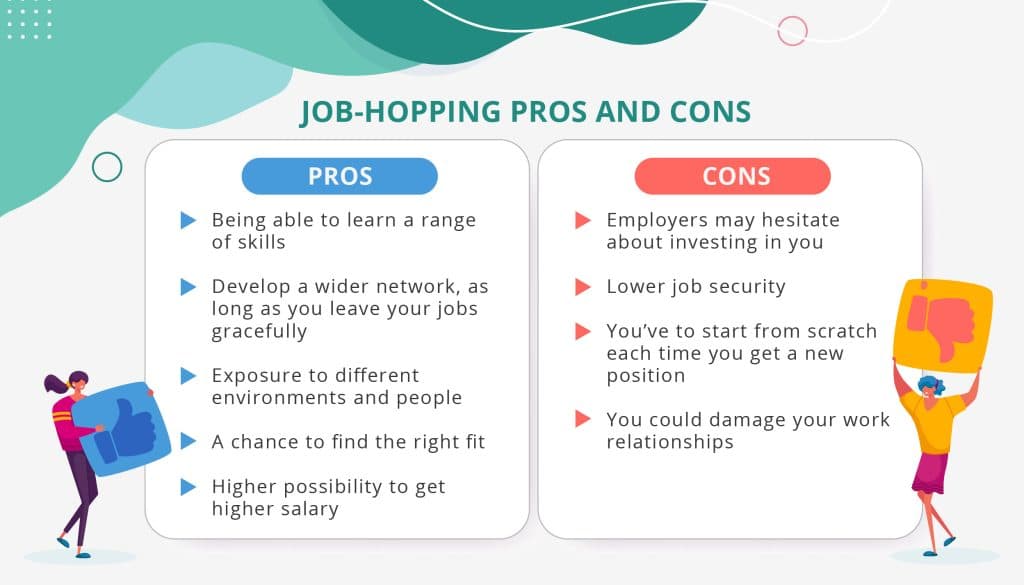Job hopping can lead to career growth and higher pay. It can also help you expand your network and meet new people.
However, frequent job hopping can cause employers to worry about your stability and loyalty. Here are some reasons why job hopping may not be good for you:
1. It can show a sign of instability
The biggest problem that hiring managers see with job hopping is that it can suggest a lack of commitment. It may also raise concerns that the person is looking for the “next best thing” in their career.
However, there are some instances in which people who change jobs often do it for the right reasons. They may feel like their work has become monotonous and that it’s time to try something new. This can help reignite a dying fire of passion for their role, and it can also help them widen their professional network.
It’s important to note, however, that changing jobs too frequently can also hurt your career, especially if the length of each stint is short. This can make employers think twice about hiring you because they will worry that you won’t stay with the company long enough to see a return on their investment.
2. Repetitively, it shows a sign of a lack of commitment
Changing jobs in a short amount of time makes it hard to look like you’re dedicated to a company. It’s okay to job hop in certain circumstances (like a mass layoff or an unhealthy work environment), but a pattern of frequent changes can cause hiring managers and employers to question your commitment. It’s something you should keep in mind when career transitioning also.
Many employees job hop because they’re looking for “greener pastures”, but that can also paint you as a person who isn’t committed to their career. Employers invest a lot of resources into recruiting and training new hires, so they’re hesitant to work with someone who will leave in just a few months. This can decrease morale and overall productivity in the office. Also, jumping around in the industry will hinder your chances of promotion.

3. It can be a sign of a lack of self-awareness
Many people who job hop do so because they are seeking a better work environment and professional passion. This may be because they are dissatisfied with the company culture or a lack of advancement opportunities. However, it is important to remember that there are other factors at play as well.
For example, a job hopper may leave a new position after a short stint because they are not vested in benefits or because the employer is unable to meet their salary demands. This can be a big turn off for employers who prefer to make a long-term investment in their employees.
It’s also important to remember that job hopping can lead to burnout. It’s important to take time away from work to recharge and re-energize.
4. It’s a sign of a lack of flexibility
Many employers see job hopping as a negative trait because it indicates that you’re not ready to commit to one company. This can make it difficult for you to get the job that you want. However, if you manage your job hopping well, you can present it as a positive factor in your application. Be sure to explain your reasons for leaving each position and practice how you’ll answer questions about it during the interview.
Job hopping can be a great way to learn new skills and gain experience in different industries. If you’re job hopping because of a lack of flexibility, make sure that you’re getting enough work/life balance to compensate for it. Also, try to minimize your gaps in employment by taking courses and other professional development opportunities.
5. It’s a sign of a lack of accountability
Many people do job hopping for a variety of reasons, such as the desire for a new challenge or better pay. However, it’s important to remember that the grass isn’t always greener on the other side. Sometimes job hopping can be detrimental to your career if it’s done too often.
If you’re able to demonstrate that your jobs are short-lived and you’ve left for good reasons. Then it shouldn’t be a problem. However, if you’re frequently changing positions, it can be hard to convince an employer that you will stay with them for the long-term. This can cause them to worry that you will leave again. Even before they have the chance to invest in your training and development. This could hurt your chances of securing an offer.




